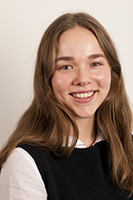About the project
The period of political and economic reforms in Myanmar from 2011 to 2021, known as the so-called ‘transitional’ period, saw significant social transformations. Based on ethnographic fieldwork in Upper Myanmar from 2018 to 2019, the PhD project uses marriage and relatedness as a methodological and analytical starting point to deepen our understanding of the intimate lives of Buddhists women during this period. Through a detailed ethnographic account, the project chronicles the various stages of a marriage. It begins with the hopeful beginnings of dating and getting married, before it explores the complex dynamics of ‘good’ marriages. It then delves further into the symptoms and strategies associated with marital distress, leading up to a critical point of marital crisis and dissolution, and eventual divorce. The project thus examines the “thickening” and “thinning” of relatedness and its consequences (Carsten 2013) in the context of marriage in ‘transitional’ Myanmar.
Objectives
The PhD project aims to produce the first ethnographic study on the topic of marriage and women’s intimate lives during Myanmar’s ‘transitional’ period. The project further aims to use marriage and the dissolution of marriage as a lens to explore the relationship between the intimate, familial, and the wider social and political in this specific ethnographic context.
Methods
The PhD project involved 15 months of ethnographic fieldwork conducted among Buddhist women and their kin in a semi-urban context in Upper Myanmar. Data collection included participant observation in diverse domestic and social settings, informal conversations, semi-formal interviews, as well as expert interviews with relevant legal and therapeutic actors.
Project period
The project will run for 4 years and conclude in 2024.
Financing
The project is funded by the University of Oslo.

